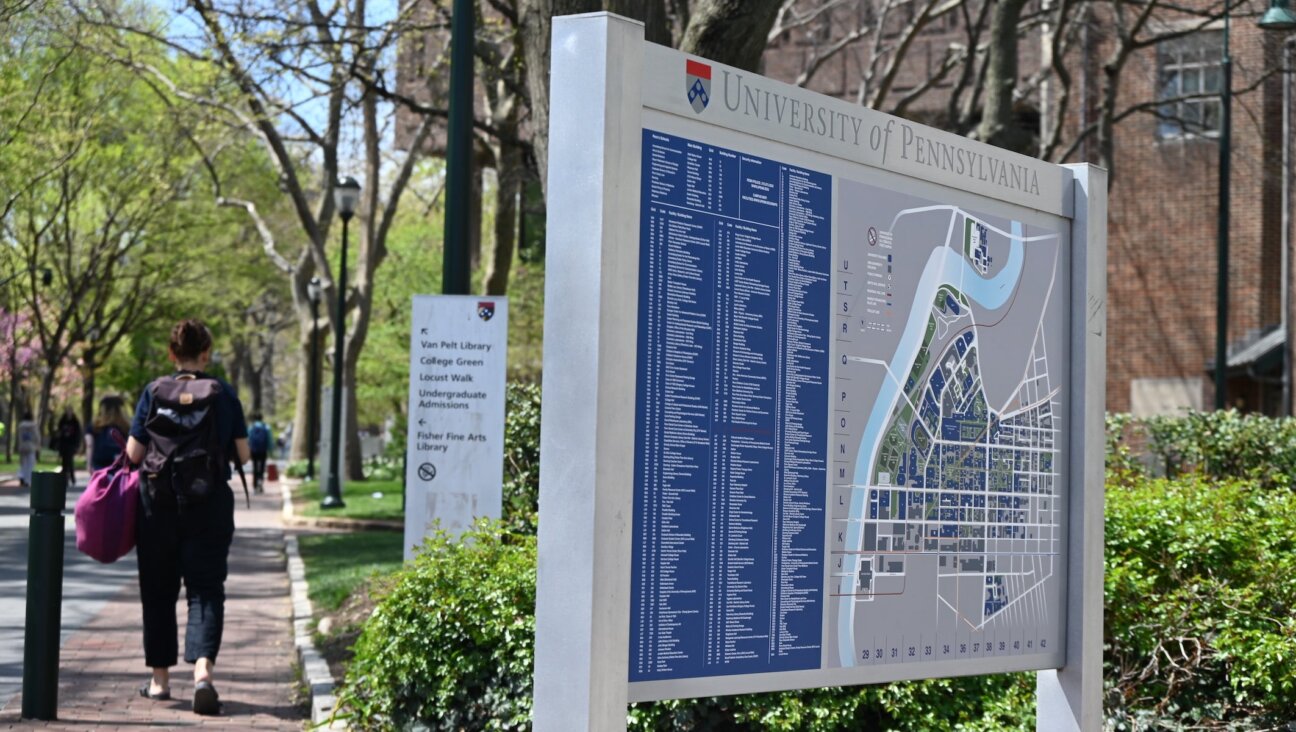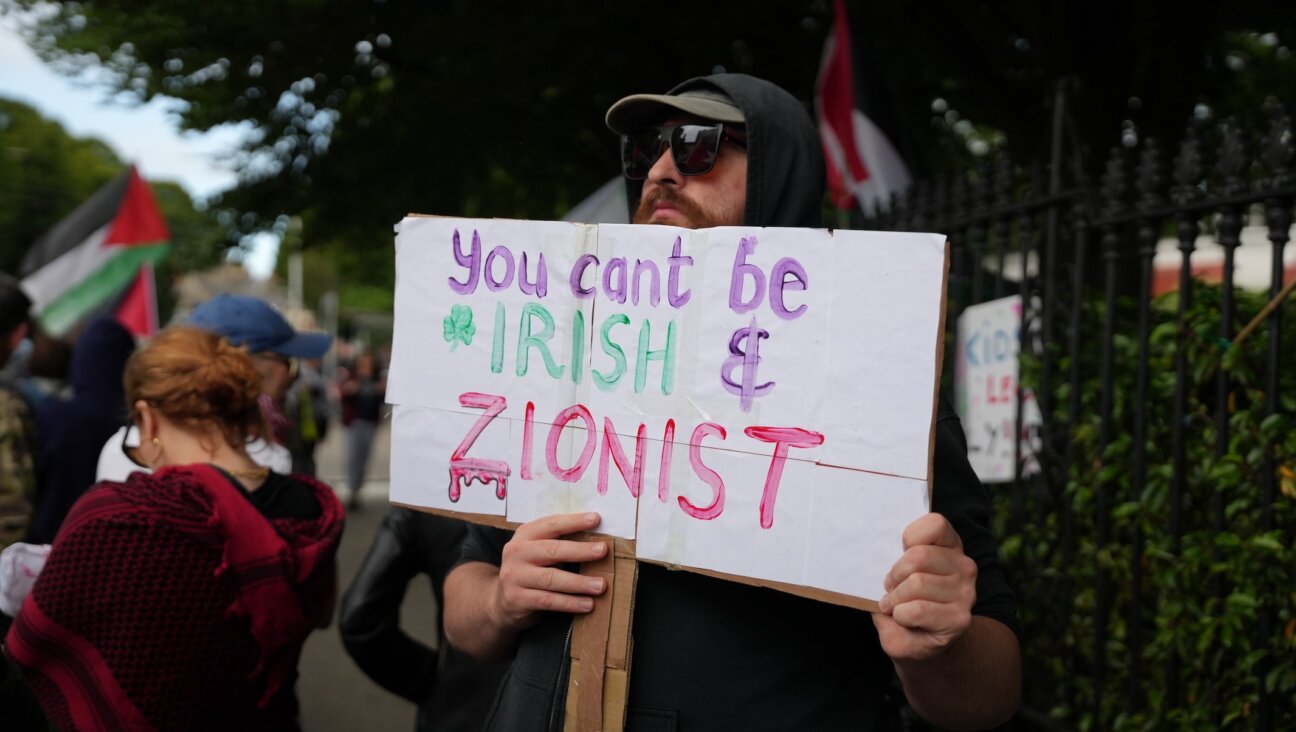Montreal Jewish Population Steady Amid Tensions Over Quebec Separatism and Proposed Kippah Ban
(JTA) — Battered and bruised by decades of separatist governments, restrictive language laws and a modern-day exodus, the Jewish community of Quebec may finally have something to celebrate.
A new analysis of figures culled from the 2011 Canadian census, known as the National Household Survey, found that Quebec’s Jewish population had not dipped below the 90,000 threshold as had previously been believed.
Montreal’s Federation CJA had projected a Jewish population in the province of 88,500. The new analysis, which combined the 83,200 Montrealers who said they were Jewish by religion in the NHS with those who said they were Jewish by ethnic origin arrived at a revised figure of approximately 91,000.
“We’re quite pleased,” Charles Shahar, a research coordinator at Federation CJA, told JTA. “We’re closer to 91,000. That seems to be encouraging. It’s a positive figure.”
It’s not quite as steep a decline as the province’s Jewish leaders had feared. Still, the new figure represents a dramatic drop in Quebec’s Jewish population from its peak of 120,00 in 1971.
Once the most populous Jewish community in Canada, Montreal’s Jews have been departing for decades, driven out largely by the antagonism to minority rights espoused by the secessionist Parti Quebecois.
For nearly 40 years, Montreal’s mostly English-speaking Jewish community has endured not only laws mandating French only on signs and in the workplace, but a general distress in the face of what the late Montreal author Mordecai Richler called French Quebec’s “tribalism.”
The latest affront to minorities is the Parti Quebecois’ proposed Charter of Quebec Values, a measure aimed at instituting religious “neutrality” in the public sphere by banning “overt and conspicuous” religious headwear – including turbans, hijabs and yarmulkes – as well as large crosses and crucifixes. Those affected would include civil servants, judges, doctors, nurses, police officers and teachers.
“This is unprecedented for a North American political jurisdiction today,” said McGill University sociology professor Morton Weinfeld. “If you’re an observant Jew, Muslim or Sikh, Quebec may not be the place for you.”
The Parti Quebecois charter has been blasted across Canada as xenophobic, discriminatory and unconstitutional. Both the Centre for Israel and Jewish Affairs-Quebec and B’nai Brith Canada have voiced strong opposition and, in a rare move, Montreal’s Jewish General Hospital denounced the proposal.
Late last month, kippah-clad Jews joined thousands of Muslims, Sikhs and Christians in a protest march against the measure, which will be introduced to the Quebec legislature later this fall. As Parti Quebecois is a minority party, the measure will need support from opposition parties to become law.
Regardless of its legislative fate, the charter is emblematic of a movement that has led Montreal Jews to quit the province in droves.
In 1971, Montreal’s Jewish community, the oldest in Canada, peaked at 120,000. By 2001, it had fallen to 93,000 – a 23 percent decline, with much of it occurring after 1991.
Some 30,000 to 40,000 Jews are believed to have left Quebec in the years following the Parti Quebecois’ rise to power in 1976. Many were well-educated young people fed up with political uncertainty, French-only language laws and public discourse often viewed as intolerant, if not outright anti-Semitic.
Immigration from French-speaking lands and high birth rates among the province’s hasidic community helped keep the numbers from slipping more precipitously, but it also has infused the community with a more Middle Eastern flavor.
In the 20 years following the 1967 Six-Day War, at least 15,000 Sephardim arrived, mostly French-speaking North Africans who integrated more smoothly into Quebec’s milieu than their English-speaking Ashkenazi cousins.
Shahar estimates that Montreal’s Sephardic community stands at 21,000, or nearly a quarter of the total – numbers that remain largely unchanged since 2001.
“We don’t really connect,” Claude Lautman, 66, a psychologist who has lived in Montreal since 1961, said of the Sephardim. “We have different synagogues, different schools. There’s a lack of outreach between the two communities.”
One sector whose ranks are growing are the haredi Orthodox, who currently number 15,ooo to 16,000, or about 17 percent of the total Jewish population. Shahar said he expects their numbers to double every 15 to 20 years.
There has also been an influx of Jews escaping anti-Semitism in France, but their numbers are hard to quantify. As of 2008, Jewish Immigrant Aid Services had open files on 200 French Jews, though there are likely many more who did not need the agency’s services.
Some Jewish figures, like Canadian lawmaker Irwin Cotler, believe it’s unlikely the charter will be enacted in its current form. Even so, Weinfeld feels the proposal represents “extreme nationalism” that will hasten the “ethnic cleansing” of non-Francophones.
Shahar said he would not know whether the Jewish exodus from Quebec has stopped until figures showing mobility over the last five years are released.















